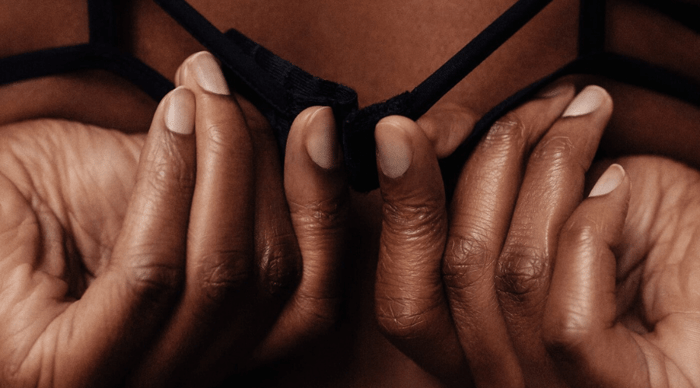The other day, I spent quite a bit of time with my very pregnant bestie shopping baby clothes. We walked around the store picking out everything the little one could possibly need. That's when I noticed a few things about the mama-to-be I hadn't paid much attention to. She seemed to be getting tired pretty quickly and was fairly cranky. She appeared big yes, but also slightly swollen. This made me think about the different body changes during pregnancy that women experience, and how they deal with them.
Pregnancy is a hormone-driven rollercoaster that prompts your body to behave in ways you never imagined possible. Producing new life, however divine and wonderful, is not always clean or simple. Also, it is far from straightforward. And so mamma, move aside and make space for me to take you through a comprehensive, under 10-minutes view on what kind of physical changes during pregnancy are most common. Let's talk about everything from anxiety during pregnancy to scary discharges.
Your belly get bigger
Your belly gets bigger during pregnancy because your uterus is expanding to make room for the baby. The uterus is made of muscle that can stretch and expand, but it's only able to do so as much as it needs to in order to accommodate a growing fetus. The uterus grows from the size of a small pear to the size of a watermelon over the course of 9 months.
As it expands, it pushes up against other organs in your abdomen and causes a round, full feeling in your belly region. The extra weight you gain during pregnancy will also contribute to the increase in your belly size, especially if you gained weight faster than usual during pregnancy or if you were underweight before getting pregnant.

Your boobies get bigger
Your body is preparing to feed a growing baby. During pregnancy, your hormones and breasts work together to produce milk. This means that your breasts will become fuller and heavier as your pregnancy progresses. You may notice that your breasts feel tight or tingly, especially at the beginning of your pregnancy. Your estrogen levels go up, which makes your breasts grow and become more sensitive to touch. You might also notice that the area around the nipples tend to get a bit darker than it was.
Lots of discharge down there
Vaginal discharge during pregnancy is a normal part of the process, but it's important to know what's normal for you. Hormonal changes can cause an increase in the amount of discharge that comes out of your vagina. They can also affect the appearance and texture of the discharge. Here is what you can expect:
First trimester: You may notice a change in your vaginal discharge as early as two weeks after conception. It will be thick, white, and sticky, and it can be accompanied by itching or burning.
Second trimester: During this time period, things are going to get a little more interesting. Your secretions will become more watery and stringy, which can make them easier to spot on your underwear if you're worried about spotting. The color will also change to clear or milky white.
Third trimester: By now your body has figured out that it's time to prepare itself for delivery! Your secretions will become clear or slightly yellowish in color and they'll start smelling like ammonia (hormones, I tell you).
You will feel bloated
You feel bloated during pregnancy because your body is producing extra blood and fluids to support the baby. That's why doctors recommend that you drink plenty of water and avoid salty foods, which can cause your body to retain more water. You can also try taking a walk or doing some other mild exercise to help your body get rid of excess fluid. The important thing to remember is that this feeling is very temporary and goes away when the little one is out.

You may be distracted
A lot of people talk about "baby brain" when they're pregnant. The idea is that your brain is so focused on the baby, and so exhausted by pregnancy, that you can barely remember your own name. Well.. is baby brain real? It is. Pregnancy affects your brain. In fact, a lot of studies show that the hormones released during pregnancy can make you more forgetful and more emotional than usual.
But hey. Baby brain is nothing to be afraid of—it's just part of the process. And it doesn't have to mean you're going to forget everything that happens in your life or become some kind of weepy mess who can't function at work. You might find yourself forgetting things more often than you used to, but don't worry about it—it'll go away once your baby is born!
Heartburns, indigestion and all that sad stuff
Heartburn during pregnancy is a common symptom. It's caused by the pressure in your abdomen, which can press on your stomach and cause acid to back up into your esophagus. There is no downplaying the horribleness of it. It can cause you to feel nauseated and miserable, and the last thing you want to do is spend time out of the house. This can be associated with, or made worse by indigestion, which is also very common during pregnancy.
Indigestion is a common problem during pregnancy, and it may feel like the only way to get relief is to pop a pill. But before you reach for that antacid, I implore you to consider some of these other options:
-Eat smaller meals more often throughout the day. This will help keep your digestive system regulated and prevent any indigestion from occurring in the first place.
-Chew gum before or after meals. Chewing gum stimulates your salivary glands, which helps break down food and reduce the amount of acid in your stomach.
-Avoid foods with lots of fat or sugar (such as fatty meats and sugary desserts). Fatty foods slow down digestion, which can cause indigestion symptoms like bloating or nausea.
-Drink plenty of water throughout the day - at least eight glasses! Water helps flush out toxins from your body so they don't get trapped inside you and cause indigestion symptoms later on down the road.

Your body hurts a lot
The very idea of pain seems quite painful but it is a sad reality of pregnancy. Body pain is a common symptom of pregnancy. In fact, about 85% of pregnant women experience it at some point, some in the very first trimester of pregnancy. It can take on many forms: backaches and pelvic pressure are common, but so are headaches, leg cramps, and heartburn. Some of these symptoms may be caused by your baby pressing against nerves in your spine or pelvis. Others may be brought on by the increase in hormones that causes your body to retain water.
Self care is your best option here. Do what it takes, ladies! Get a massage, reconsider your sleeping position, and keep yourself constantly hydrated. Also, keep moving during pregnancy. Put on a super comfy pair of maternity leggings and take small walks throughout the day. Keeping yourself active is a great way to avoid cramping, pain buildup and more.
You get tired and cranky
Pregnancy is exhausting, and it's not just because you're doing all of the stuff that you normally do (work, cook dinner, clean) but also because your body is growing another human being inside of it. You are literally creating a person! It's so exciting! But it's also pretty darn tiring. Mood swings during pregnancy are extremely common. You feel like you simply cannot get a hold of your emotions during pregnancy. All of this is normal, inevitable and can be dealt with.
Tiredness during pregnancy is often caused by an increase in progesterone levels. Progesterone is a hormone that helps maintain pregnancy and control menstruation. During this time, your body may feel like it needs more rest than usual—and that's totally normal! Sleep as much as you can - long nights coming soon!

Takeaway
So there you have it! Your body is going to change during different stages of pregnancy, and that's okay. It's normal, and it's part of the process. The best way to deal with body changes during pregnancy, week by week is to accept them, be kind to yourself about them, and remember that this is a time when your body is doing its best work ever: creating a healthy baby!







